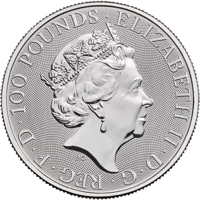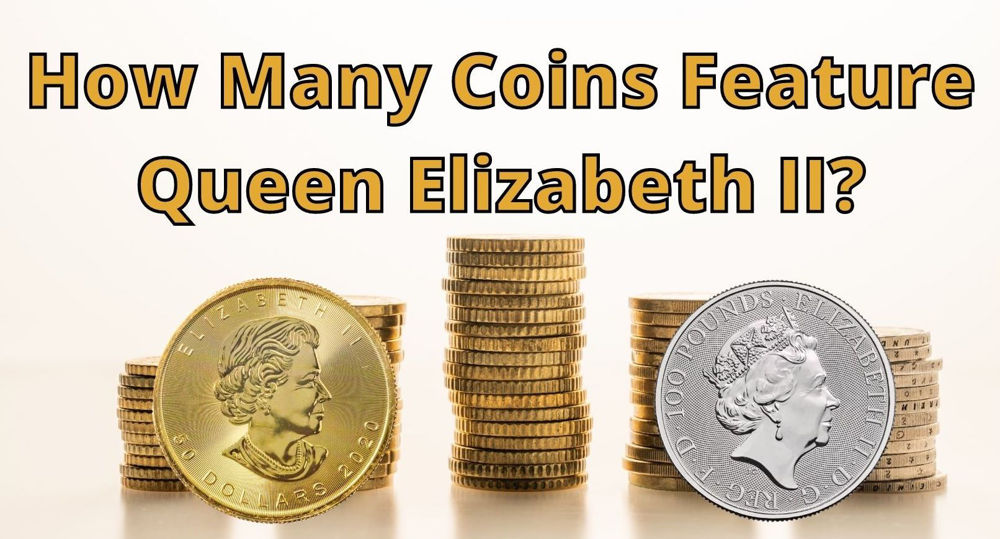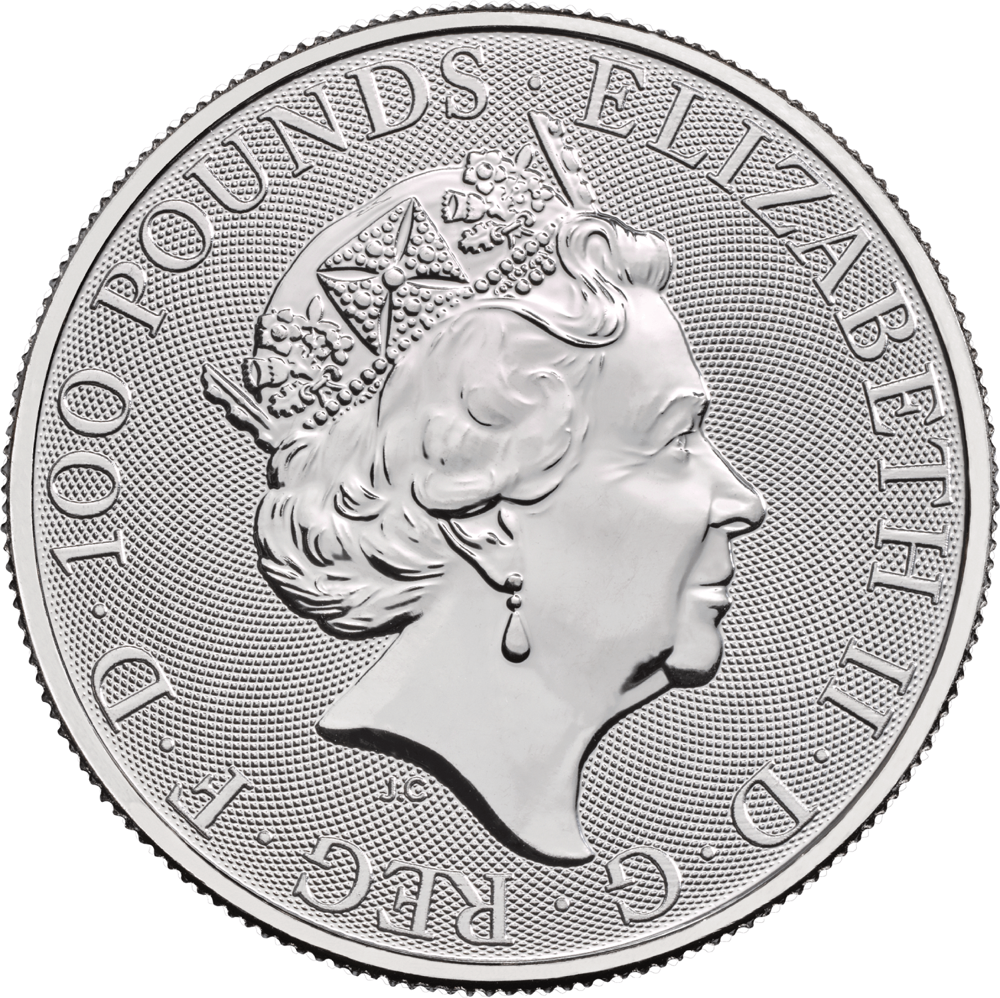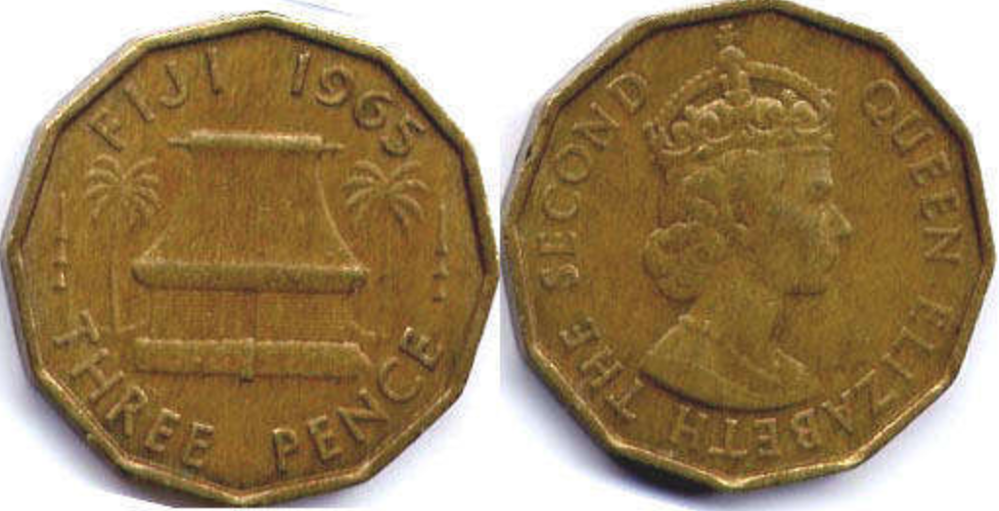Posted on January 26, 2022


British royalty are some of the most important figureheads in the world. But no position is more revered than the Queen of England. So, it should come as no surprise that many places have used the image of the current queen, Queen Elizabeth II, on their coinage. But just how many coins is Queen Elizabeth II on?
Queen Elizabeth II is the Queen of the United Kingdom, the longest-ruling monarch in British history, and the longest-reigning living monarch.
Whether or not you’re a numismatist, there’s a good chance you’ve held a coin that features Queen Elizabeth II’s face on it. Appearing on coins from 35 countries (including 14 British overseas territories and three Crown dependencies), Queen Elizabeth II holds the Guinness world record for “Most currencies featuring the same individual.”
While it’s difficult to pin down an exact figure, Queen Elizabeth II has appeared on hundreds, if not thousands of different coins.
Over the nearly 70 years Queen Elizabeth II has been featured on coins, there have been a total of five different coin portraits used by The Royal Mint bearing the Queen’s effigy.
Beginning in 1953, just one year after Queen Elizabeth II’s ascension to the throne, the Royal Mint released the first coins with Queen Elizabeth’s effigy on it. Designed by sculptor Mary Gillick (who beat out 17 other sculptors in a competition), this early image of Elizabeth II is known as “The First Definitive UK Coin Portrait.” The right profile of a young Elizabeth II is depicted, with Her Majesty wearing a laurel crown. This design challenged some norms by revealing the Queen’s shoulders and portraying her in an unadorned, simple manner.
The Second Definitive UK Coin Portrait took a turn toward a more magisterial display of Queen Elizabeth II. Designed by Arnold Machin, the second UK effigy has Her Majesty donning a proper royal crown, a wedding gift to Elizabeth II from her grandmother, Queen Mary. Still, the Queen appears youthful and modest, with some fabric loosely covering her shoulders.
The third iteration of the Queen’s portrait took the stage in 1985 and was noticeably different from its predecessors because the Queen’s shoulders have been truncated. Another notable change in the Third Definitive UK Coin Portrait is that Elizabeth II is wearing a tall crown (King George IV State Diadem), as well as earrings and a pearl necklace.
Portrait number four bears the image of a mature, somber woman and like the third iteration, it omits her shoulders and part of her neck. The Queen has also returned to wearing the same crown featured on the second coin portrait (Girls of Great Britain and Ireland tiara).
 The fifth and final coin portrait came onto the scene in 2015 and is still used today. By this time, the Queen was already 88 years old, and there was no attempt to conceal her age and accompanying wrinkles. The King George IV State Diadem sits atop her head, and she appears to be wearing her coronation earrings and necklace on the third coin portrait.
The fifth and final coin portrait came onto the scene in 2015 and is still used today. By this time, the Queen was already 88 years old, and there was no attempt to conceal her age and accompanying wrinkles. The King George IV State Diadem sits atop her head, and she appears to be wearing her coronation earrings and necklace on the third coin portrait.
While the UK uses these five busts on its coins, other countries have their own depictions and designs for their coinage. In Canada since 2003, Queen Elizabeth II has occupied the obverse side of Canadian Maple Leaf coins. The competition-winning design by Susanna Blunt shows a Queen who appears to be smiling softly, with visible wrinkling on the side of the eye. Additionally, Blunt’s design extends down to about the collar bone, upon which a pearl necklace and shirt rest.
Her Majesty’s profile is an incredibly popular subject for both coins and bullion and has been featured on hundreds of coins and bullion from dozens of countries. Early on, the Queen’s likeness was used on all sorts of coins, from pennies and pence to shillings and farthings. The Queen is also the face of the British £1 coin and has been for decades. Elizabeth II also appears on many different commemorative coins, like the £2 50th Anniversary United Nations coin, the Silver Jubilee Medallion, the Queen’s Beasts series, and more.
When Mary Gillick’s design was first released in 1953, the Royal Mint struck three sets of proof coins to commemorate the Queen’s coronation. The coins were kept together in sets and consisted of four coins: a half-sovereign, sovereign, £2, and £5.
In 1953, the nine pre-decimal coins first featuring Queen Elizabeth II’s effigy went into circulation. These coins included: a farthing, half-penny, penny, three-pence, six-pence, English shilling, Scottish shilling, florin, and half-crown. You can find these coins for sale as a set on websites like eBay.
Many of the countries which feature the Queen’s image are members of the Commonwealth, an association dating back to 1931 whereby countries pledged allegiance to the British crown while gaining autonomy as a nation.
Among the first countries to mint Queen Elizabeth II coins in 1953 were Australia, Canada, New Zealand, and South Africa. These countries are all Commonwealth members, were all British colonies, and are all very well-known today as advanced, economically successful nations.
The Nigerian sixpence coins featuring Queen Elizabeth II are fascinating because they were only produced in 1959, just one year before Nigeria became an independent country under the Commonwealth umbrella.
Another interesting Queen Elizabeth II coin comes from Fiji in the 1950s and 1960s. The Fijian three-pence coin is a dodecagon, meaning it has 12 sides. Minted between 1955 and 1967, the polygon design is made of nickel and brass, featuring Her Majesty’s likeness as portrayed by sculptor Cecil Thomas.

Source: https://worldcoinsinfo.com/world/fiji-coins.html
Two more interesting examples of Queen Elizabeth’s effigy on coinage are the Iwo Jima and Pearl Harbor commemorative bullion coins. Available in silver or gold, these are legal currency issued by the tiny island nation of Tuvalu, one of the world’s smallest countries. The Perth Mint manufactures the coins since Tuvalu–home to fewer than 12,000 residents–does not have its own mint.
A few more interesting coins with the Queen's likeness include an Amrmillary coin from the Valcambi mint and various commemorative coins from refineries throughout the globe.